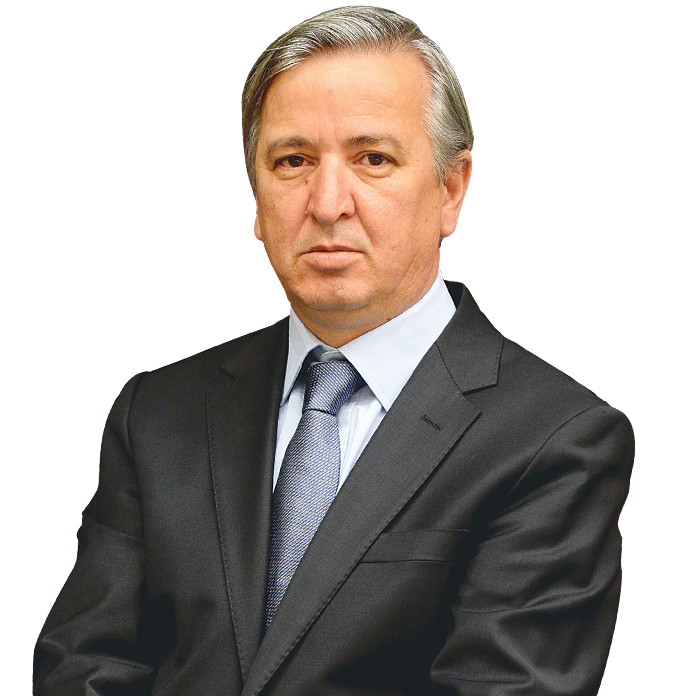
- 15.01.2025, Wednesday
- 02:22
FETÖ threat in Kazakhstan
09:513/07/2017, Monday
U: 3/07/2017, Monday
Next article
Aydın Ünal

The large Turkish basin, including some of today's Kazakh territory, is known as Turkistan in history, and the Islam’s most brilliant centers of science and civilization were born in this region. In the 13th century, the Mongols invaded the entire region and had reached Anatolia. After the Mongol invasion, the region suffered internal conflicts, and then the Russian occupation began. Kazakhstan, one of the most important states in the region, declared its independence on Dec.16, 1991 under th
The large Turkish basin, including some of today's Kazakh territory, is known as Turkistan in history, and the Islam’s most brilliant centers of science and civilization were born in this region. In the 13th century, the Mongols invaded the entire region and had reached Anatolia. After the Mongol invasion, the region suffered internal conflicts, and then the Russian occupation began.
Kazakhstan, one of the most important states in the region, declared its independence on Dec.16, 1991 under the leadership of Nursultan Nazarbayev. Centuries-long occupation and conflicts had finally ended.
The historic region of Turkistan was the golden age of Islamic science and civilization with its cities, its madrasahs and the scholars it educated. However, the Mongol and Russian invasion brought the region to a drought that lasted for centuries.
Kazakhstan, like some other Turkic states, begun to rediscover its essence following its independence. Closed mosques were reopened and new ones were built. Symbols of the golden age of Islamic civilization, especially Khawaja Ahmad Yassawi and his mentor Arslan Baba’s tomb, became centers of attraction once again. Values the Soviets tried to destroy by their anti-religious persecution policies quickly revived. The young as well the elderly rushed to the mosques enthusiastically, freely performing their worship that they have not been able to fulfill for centuries.
Kazakhstan is the 9th largest country in the world in terms of surface area. The vast territories, above and below ground, from China to the Caspian incudes plenty of wealth waiting to be unearthed and processed. This wealth causes Russia, China and the U.S. to take “close” interest in Kazakhstan.
The U.S. is using the Gülenists in Kazakhstan, as it does in other countries with Muslim population.
There are more than 30 Fetullah Terror Organization (FETÖ) schools in Kazakhstan. While Gülenists have been expelled from Turkey, they have identified Kazakhstan, Albania and the Republic of South Africa as new centers. The schools and trade relations have made Kazakhstan a favorable country for Gülenists. The worst is that FETÖ is practiced in Kazakhstan not by Turks but by Kazakhs raised in FETÖ schools. It has been stated that Kazakh Gülenists who are raised in FETÖ schools have infiltrated almost every critical position including the judiciary, intelligence, army and police.
Kazakh President Nursultan Nazarbayev was the first leader to visit Turkey after the July 15 coup attempt. He stated, "Turkey's enemies are our enemies," promising a joint fight with FETÖ.
Although one year has passed, Kazakhstan has not yet initiated a comprehensive fight against FETÖ.
FETÖ remains the biggest threat Kazakhstan faces today. Succeeding the painful Mogul, Russian and Soviet occupations in history, FETÖ has the potential to occupy Kazakhstan now.
Gülenists in Kazakhstan are insidiously attempting to sabotage Turkey-Kazakh relations. The joint institutions of Turkey and Kazakhstan are the primary targets of these sabotages. However, it is clear the only target is not Turkey-Kazakh relations. It is clear that Nazarbayev, who has established friendly relations and visited Turkey for the first time after July 15 asserting "your enemy is our enemy," is also the target of this threat.
Kazakhstan may not have fully understood the nature of the Fetullah virus. It may not be able to see how FETÖ has sneakily progressed to a certain stage, how they have been able to disseminate, how they have seized the economy, media, military and civilian bureaucracy and that it may be too late once they are discovered.
It is clear that Turkey and Kazakhstan should cooperate in a stronger manner against this common threat.
Otherwise, they may attempt to occupy the state and the country in one night in Kazakhstan, just as they did in Turkey on July 15. That night, Turkey prevented the occupation with the help of God. But Kazakhstan may not be so fortunate.
While there is time, it would be good to first take measures, and then put trust in God.
Kazakhstan is the homeland of our ancestors. After all, Kazakhstan’s enemy is our enemy. History is an incontrovertible witness of this.
#Kazakhstan
#Turkey
#FETÖ
LEGAL NOTICE
The BIST name and logo are protected under the "Protected Trademark Certificate" and cannot be used, quoted, or altered without permission.All rights to the information disclosed under the BIST name are entirely owned by BIST and cannot be republished. Market data is provided by iDealdata Financial Technologies Inc. BIST stock data is delayed by 15 minutes.
